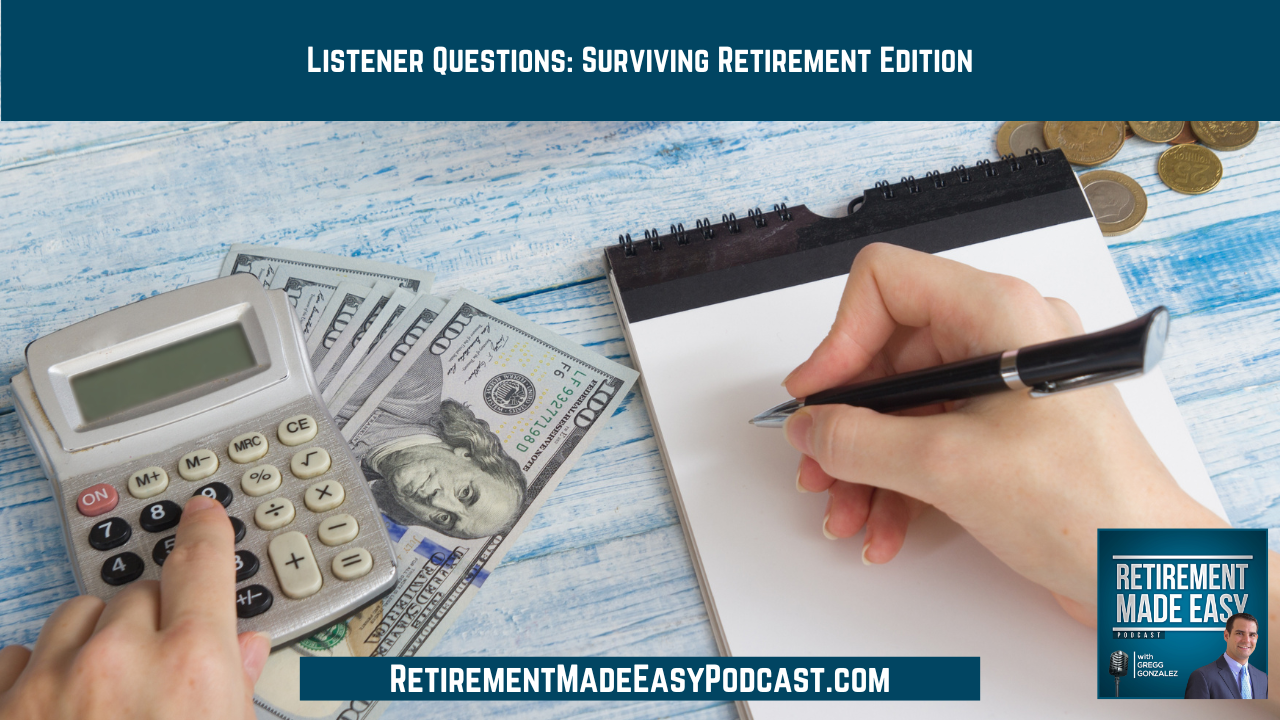
Getting through retirement while being able to pay all of your expenses is the goal. But how do you make it happen? You’ll have to make decisions before and during retirement that will impact whether or not it’s successful. I answer some questions directly related to financially surviving retirement in this episode of Retirement Made Easy.
You will want to hear this episode if you are interested in…
- [1:46] Question #1: Should you build an expected inheritance into your plan?
- [5:19] Question #2: How can you calculate costs in retirement?
- [8:24] Question #3: How does disability work with life insurance?
- [10:25] Question #4: How does the survivor benefit work when divorced?
- [13:05] Question #5: Why do you need to find specialists?
Should you build an expected inheritance into your plan?
I can tell you story after story of someone who expected an inheritance from a parent or relative and didn’t get what they expected. Perhaps their estate plans were changed and they reduced the amounts allocated to certain people. Or long-term care ate away at their estate value.
Perhaps their portfolio was invested poorly and the value declined. The estate may end up in probate and delay the inheritance you receive. Or someone challenges the estate during the process and feels they’re entitled to part of the estate. All of that to say, you should never bank your retirement on someone’s inheritance.
How does disability work with life insurance?
This listener’s father is in assisted living and doesn’t have the money to pay the premiums for life insurance. Their financial guy told them to cash in the life insurance so they wouldn’t have to pay the premiums. The benefits were over $300,000.
Some life insurance policies have a disability waiver of premium. If you become disabled, you will no longer have to pay premiums and the death benefit stays intact. I would look into this first before making any big decisions to cover costs.
How does the survivor benefit work when divorced?
This listener started collecting Social Security at 65. Her ex-husband is 75 and in poor health. He was told he only had two years left. How will his passing impact her?
They were previously married for 15 years which means she’s eligible for spousal and survivor benefits (as long as she didn’t get remarried before she turned 60).
Let’s assume she’s getting $1,800 a month and he’s getting $3,300 a month. If he passes away, his $3,300 a month would go to her and her $1,800 would drop off.
Why do you need to find specialists?
Beth works with a stockbroker with a large firm in St. Louis, who recommends buying and selling individual stocks and bonds. She asked him point-blank about her retirement plan and he changed the subject. Her CPA wouldn’t help her with tax planning.
I think the stockbroker’s specialty is the investments themselves, just like her tax preparer focuses on tax returns. You’re working with the wrong providers. You need to work with someone who specializes in tax planning and retirement planning. Who specializes in what you need help with?
Learn more ways you can prepare for—and financially survive—retirement in episode #172 of Retirement Made Easy.
Resources & People Mentioned
Connect With Gregg Gonzalez
- Email at: Gregg@RetireSTL.com
- Podcast: https://RetirementMadeEasyPodcast.com
- Website: https://StLouisFinancialAdvisor.com
- Follow Gregg on LinkedIn
- Follow Gregg on Facebook
- Follow Gregg on YouTube



